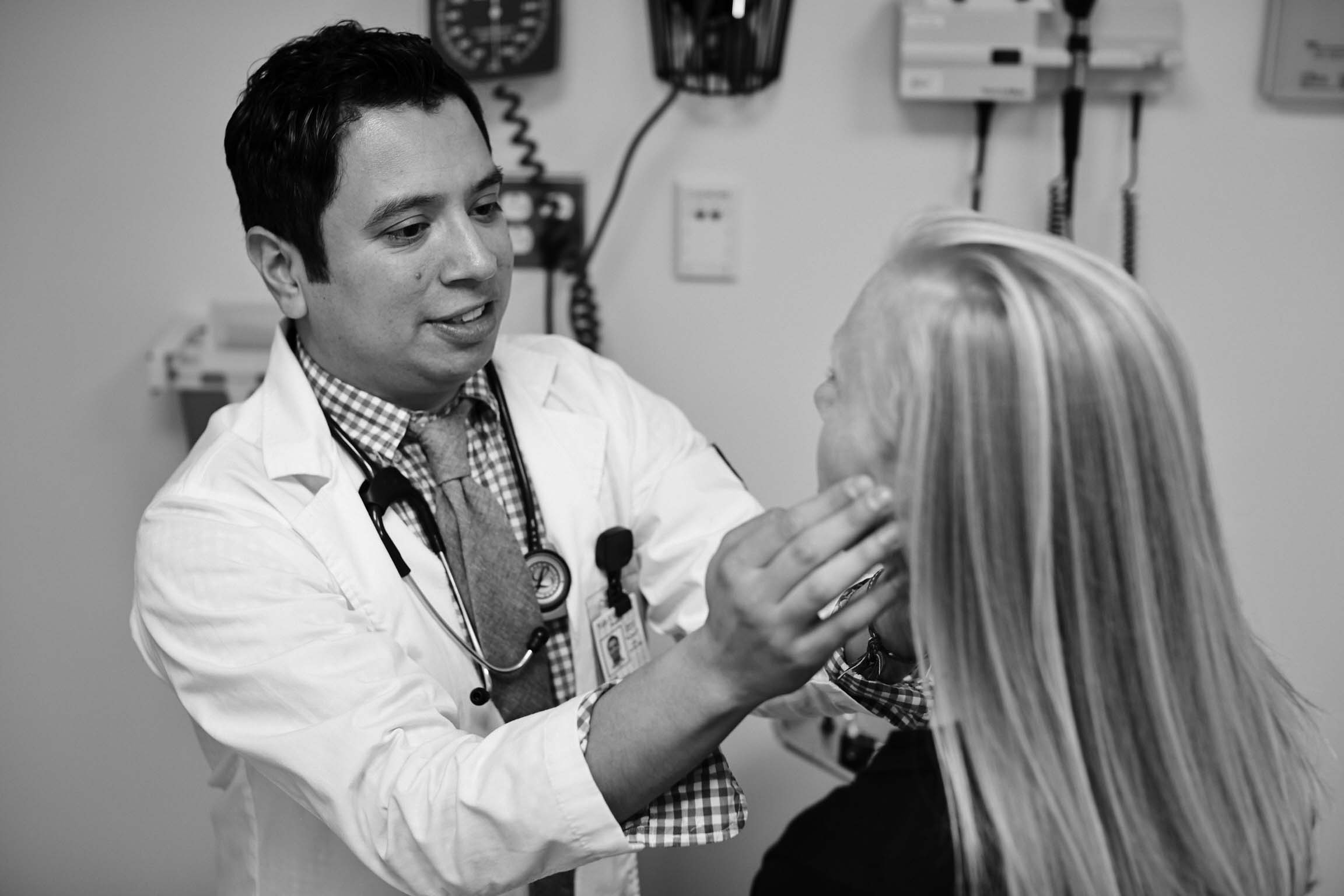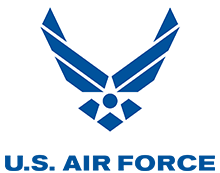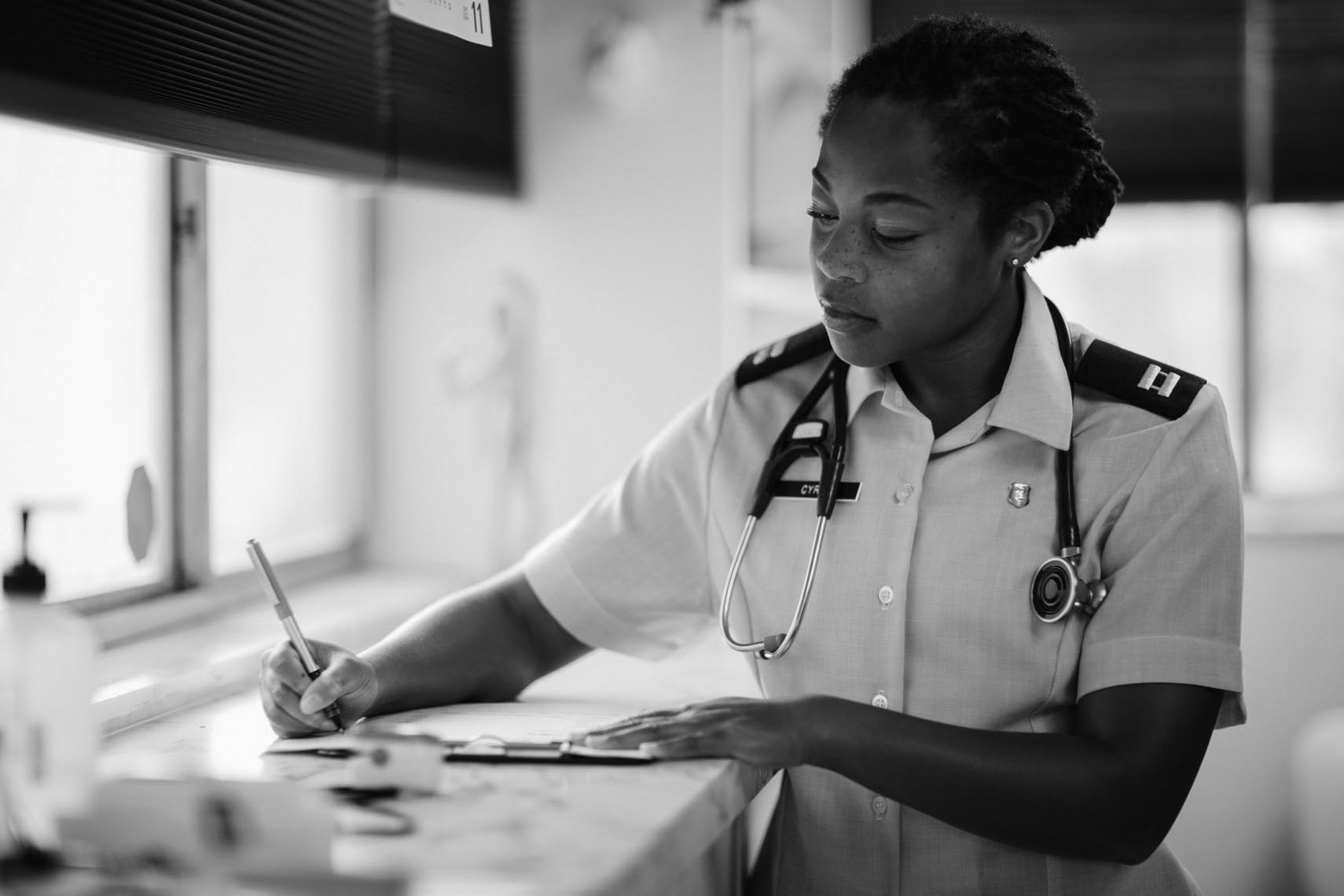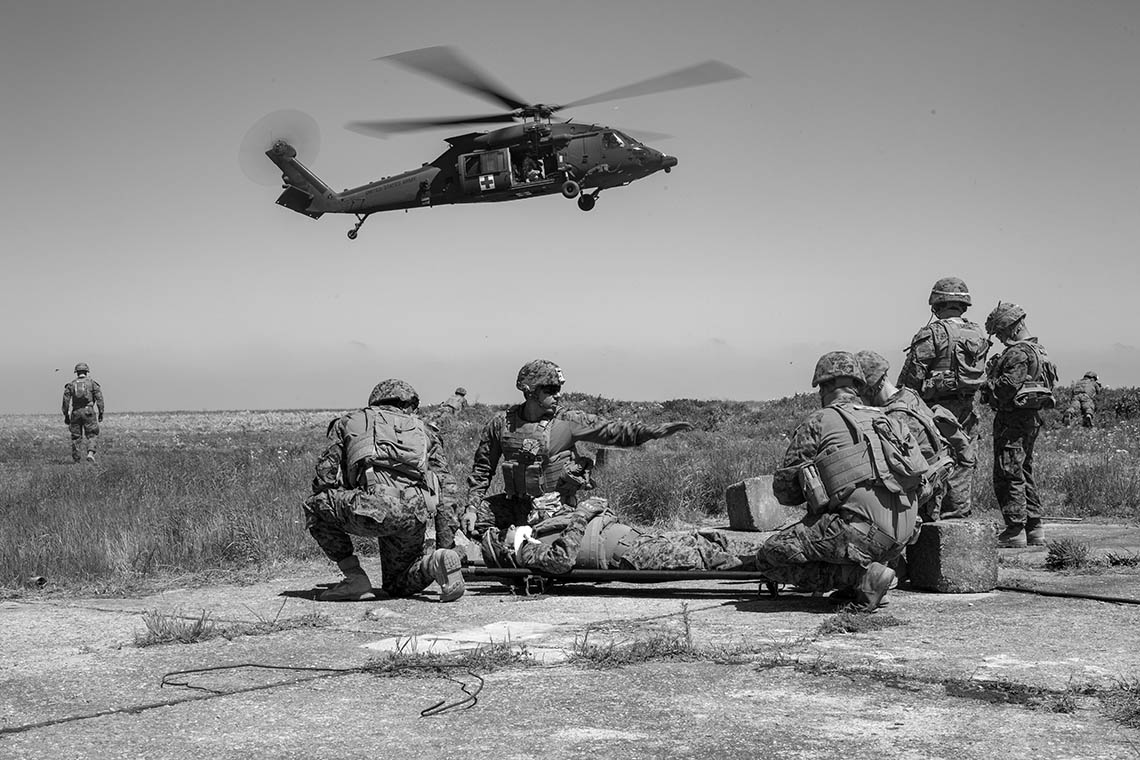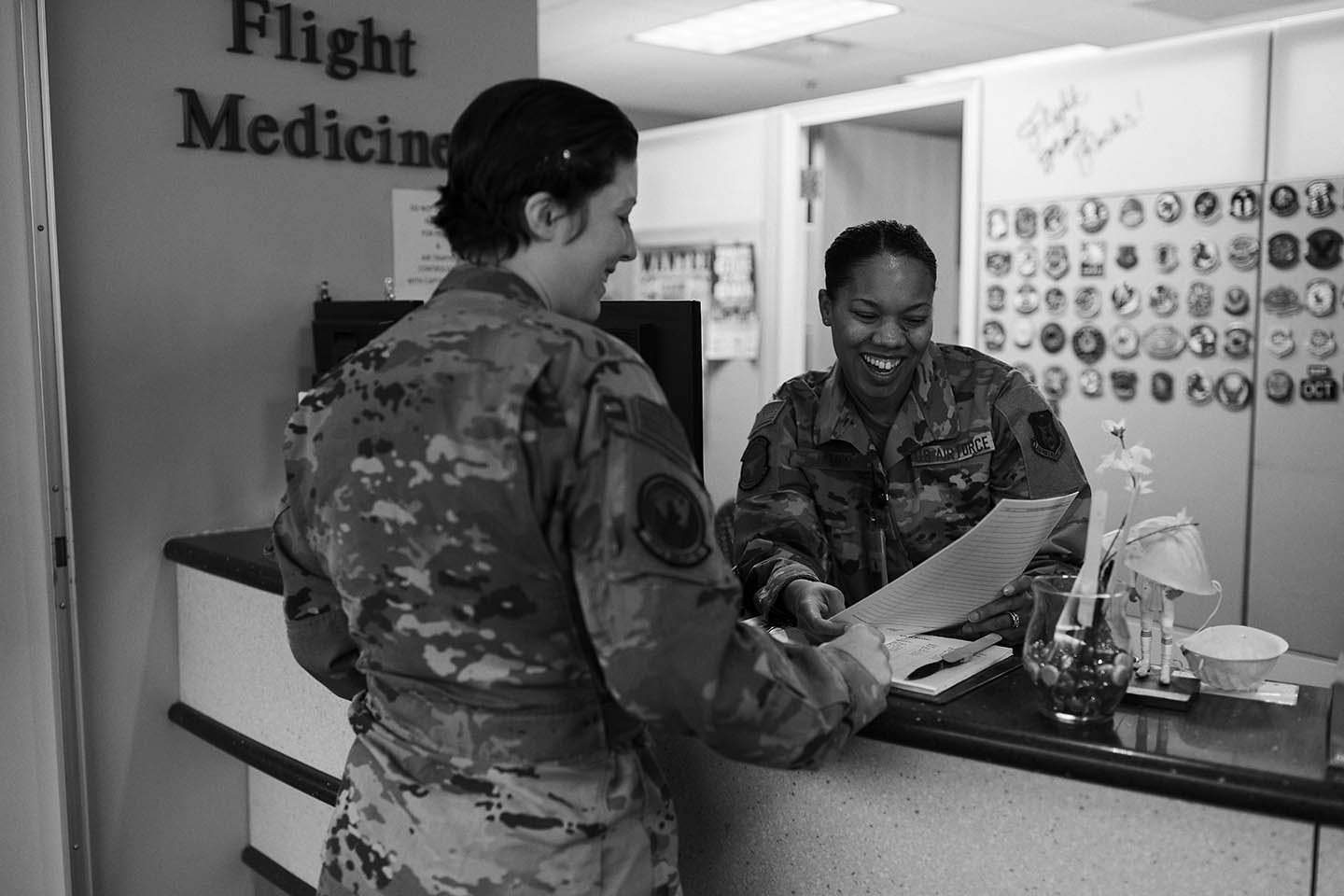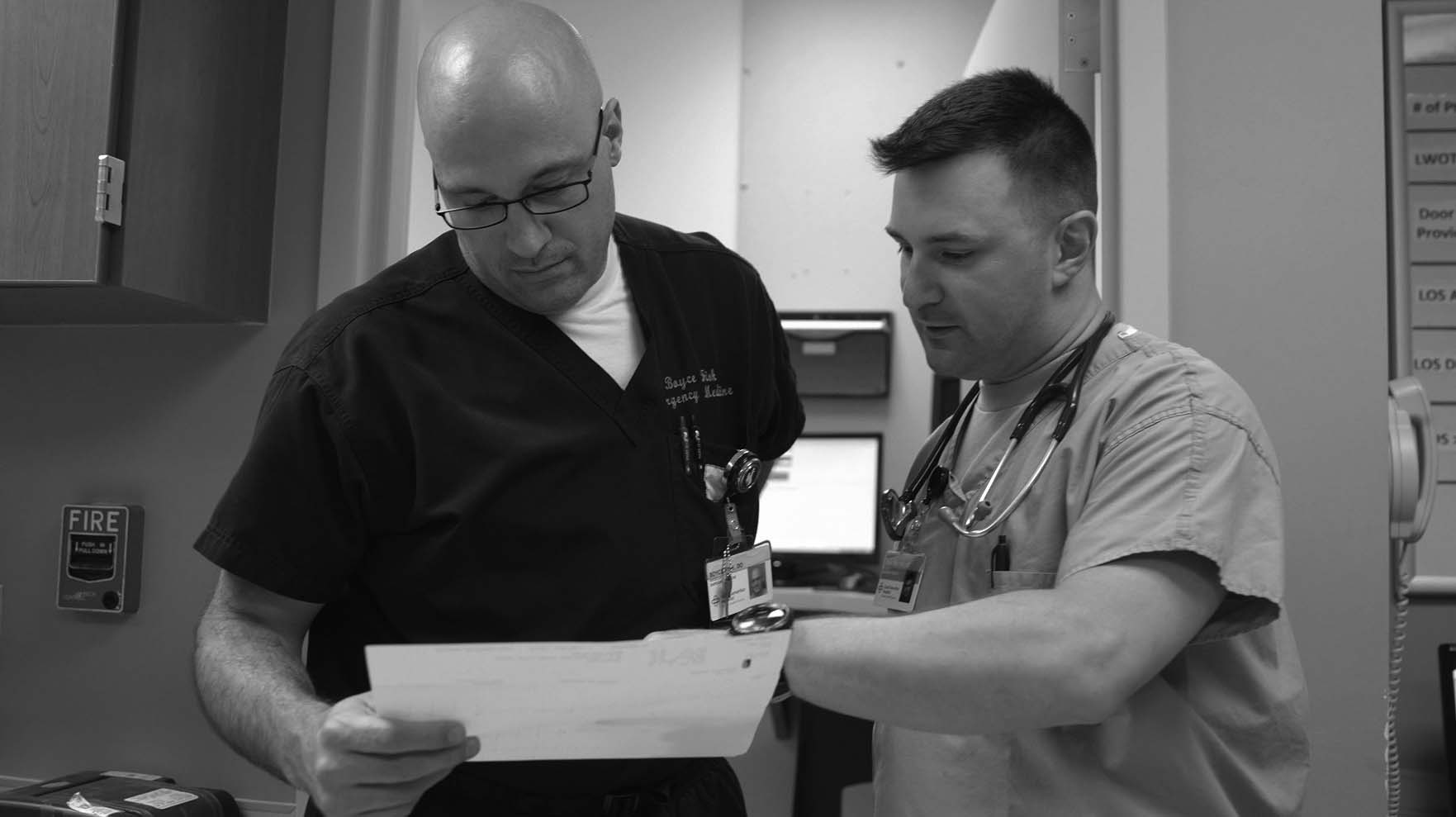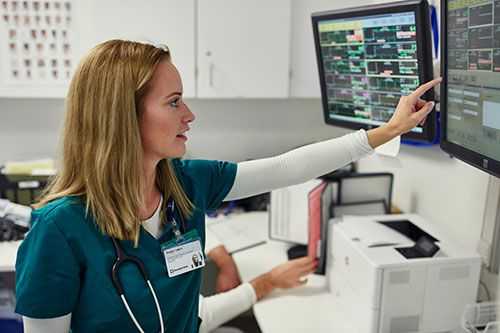- FAQs
- |
Non-Physician Careers in the Military
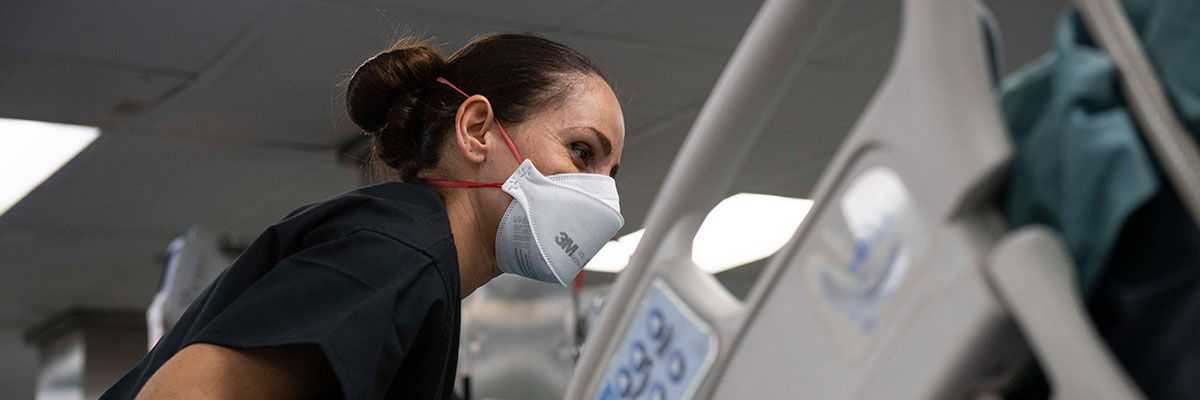
Military medicine offers unparalleled opportunities across various healthcare vocations, including specialty medicine, dentistry, nursing, mental health, allied health professions, administration, research and numerous technical fields.
For those interested in a non-physician military healthcare career, the relevant disciplines are organized into the five distinct corps:
Dentist: Capt. Michael Lamb
Hear about Captain Michael Lamb’s path to becoming an Air Force dentist and the opportunities he has been given in the Military.
Dentist: Capt. Michael Lamb
Hear about Captain Michael Lamb’s path to becoming an Air Force dentist and the opportunities he has been given in the Military.
Growing up I would hear stories from my dad about how much he valued the Dentistry group practice and I wanted to pursue that myself. My name is Captain Mike lamb and I'm a dentist in the U.S Air Force. Currently, I am a resident in periodontics and we treat inflammatory disorders in the oral cavity we replace missing teeth with implants and then we reconstruct lost structures. My experience as an Air Force dentist has been defined by opportunity the opportunity to work with other clinicians in a collaborative environment. The opportunity to travel the opportunity to grow my leadership responsibilities and the opportunity to not have debt early in my career the HPSP or Health Professions Scholarship Program was such a relief because I didn't have to worry about my finances as I was being educated. I received the HPSP scholarship my first year of dental school. Not only is your school taken care of by the Air Force, books lab fees a living stipend no matter what you're interested in health care the Air Force will support you it's been incredible. What I've learned in the technology that's available to me one of the limitations of the private sector is you always have to think about your patients Financial limitations and that factors into your clinical decisions it's amazing to work in an environment where that's not a factor it's almost unlimited what we can do digitally surgically. The Air Force empowers me to do anything that is necessary for my patients. It's very important as a young clinician to be supported and the Air Force provides support in every imaginable way foreign.
U.S. Air Force: National Pharmacist Day
See how pharmacists dispense critical prescriptions daily.
U.S. Air Force: National Pharmacist Day
See how pharmacists dispense critical prescriptions daily.
The day after holiday especially after holiday is super super busy we serve 47,000 approximately 47 000 people population we serve we have we have active duty of course their family members and retirees and their family members and anyone else who have tricare any questions about either one folks tend to think like we are like a fast food hey why can't you just slap a slap a prescription a slap a leg blood and give it to me no it doesn't happen like that. We have to go through all a lot of different stuff this is critical because we're we're having to match up that it's the right patient the right medication the right dosage the right quantity um that there are no drug interactions it can be stressful but um i think what helps is that it's a team effort so we're all pulling um and we're all looking at these prescriptions we're all looking at the medications we're all and so um it's just having that double check having that wingman always by your side. Events that take place in the pharmacy say we had an error we address it there we i tell my staff do not take it personal when patients get too riled up with them i paint that picture to my staff for them to realize what patience goes they leave home go see their providers from their providers they get diagnosed they either get good news or bad news a lot of time it's not so good news. They they're sent to the lab then they're sent to radiology sometimes and guess where the last place they come they come to pharmacy see the big picture see what's happening to them look at them as an individual and see that what possibly could be going on in their life be that reassurance to them as much as they can all right all right we appreciate your time sir have a good one okay thank you.
Serve as a Physician Assistant in the Army National Guard
Capt. Sheri Talbott explains how rewarding it can be to serve as a physician assistant in the Army National Guard.
Serve as a Physician Assistant in the Army National Guard
Capt. Sheri Talbott explains how rewarding it can be to serve as a physician assistant in the Army National Guard.
So I started my military career when I was 18 years old. I was active duty in the Marine Corps and in that position I fixed everything electronic in terms of communication equipment on tanks and jeeps and backpack radios and then there was a long hiatus. I did four years I was an e5. When I got out and discovered my love of all things medical and I think that the comparison here would be that I'm diagnosing now but just different you know now I'm diagnosing people versus equipment, so clearly it's a passion. So I came into the Massachusetts National Guard in 2013 I direct Commission. I was a physician assistant fully-fledged at that point and working and I met a recruiter at a pharmacology conference and fell in love again. This is a family, make no mistake, this is a family and it's just amazing to see how we get to support each other how we are supported. I'm currently in a doctorate program the Army is paying for that I'm using the GI Bill and what a fabulous thing that is what a great opportunity it's providing me and then I'll get to take that information that degree that body of knowledge and give it back in so many ways you know. It's an amazing awesome responsibility to be a medical provider there's this giant scope of practice there is the privilege to take care of patients and in this case to take care of soldiers and if you put that in the context of an emergency such as this this virus that you know we're doing battle with now it's it's an all-hands-on-deck situation to protect people to protect our our colleagues to protect the citizens of this state to plan and be medically ready to address whatever it's going to bring our way. I mean right now it's uncharted waters being a physician assistant in my humble opinion is one of the best professions it's certainly one of the best things that I've ever done with my life. I consider it a privilege. I consider it an awesome responsibility to take care of people breath of medical knowledge that were responsible for before I was I'm currently active duty in the Massachusetts Army National Guard right now but just prior to that a year and a half ago I was the chief physician assistant at Brigham and Women's Hospital for lung and kidney transplant so all you know also an awesome responsibility and now you know take those abilities in that body of knowledge and turn it over and and broaden it into this experience of taking care of all of the soldiers in the Army National Guard so now you know now you're you're managing not just the clinical things that you have to know but also the administrative things of planning and you can care people responding this pandemic that we're trying to get you know a handle on right now it's it's an incredible rewarding thing. You'll be so proud of what you do not just for your colleagues but for the citizens of the state for your nation it's a it's a terrific responsibility.
Navy Nurse Corps Officer
Learn about the broad range of nursing specialties offered in the Military and the unique experiences that come with them.
Navy Nurse Corps Officer
Learn about the broad range of nursing specialties offered in the Military and the unique experiences that come with them.
It's willing to be able to save lives and interact with your fellow sailors and know that you're there for them [Music] The sky's the limit as far as your leadership potential as an officer you can be a department head you can be a division officer be the director of surgical services so my job as a navy nurse is to take care of critical patients during that time of need. The Navy Aveeno slaughter training were we to deploy together we can work together as a team and adopt as we need to at the right time there's a perioperative nurse my main job is to keep the patient safe I assist the anesthesiologist with putting the patient asleep. I'm a certified nurse anesthetist I'm the only one on this ship so I'm here primarily for trauma surgery things that needs to be done to save lives I do allow dental cases teeth extraction. I do a lot of sedation this is probably one for this size in a civilian operating room. It's me a surgeon and a tech I am responsible for halakhah the Navy sent me to midwifery school and I received my master's of Science in Nursing with a specialty in midwifery a lot of our military family members have to have babies without spouses and have to go it alone and where their family there's nothing like seeing a mother meet her baby for the very first time putting into her arms and seeing a new life begin I was tasked to go to the comfort. To help the people in Puerto Rico I basically help provide a to multiple situations where people need to be intubated had to have life-sustaining measures as far as doing CPR you have to love the people you have to have compassion [Music]
U.S. Army Capt. Breanna Johnson | 64A Veterinary Officer
Watch Capt. Breanna Johnson share her journey to becoming a veterinarian and the many hats she wears in her role.
U.S. Army Capt. Breanna Johnson | 64A Veterinary Officer
Watch Capt. Breanna Johnson share her journey to becoming a veterinarian and the many hats she wears in her role.
I'm Brianna Johnson I'm a captain veterinary Corps officer I'm the Fort Drum veterinary services officer in charge. I work here up in Fort Drum New York so I'm from a military family so it was sort of natural for me to enter service. I came from that lifestyle from that culture I really love working with the military working dogs that was my passion that was why chose to get in in the first place as a veterinary Corps officer but what she realized once you get in is I actually wear several hats so the veteran Corps officers are responsible for Public Health on posts. We also do a lot of food safety so we inspect the food that goes to the commissary to make sure that it's safe for the families that are purchasing it [Music]

